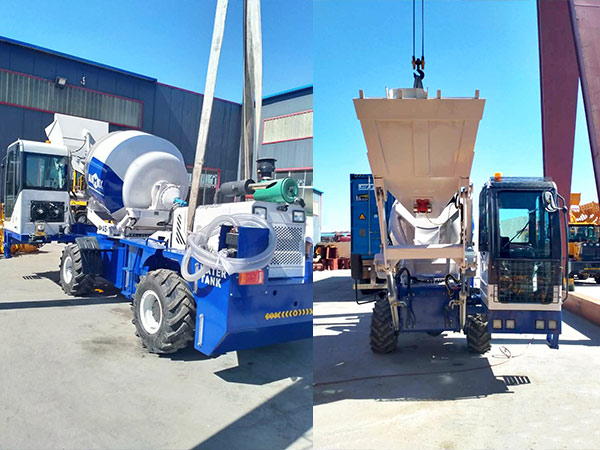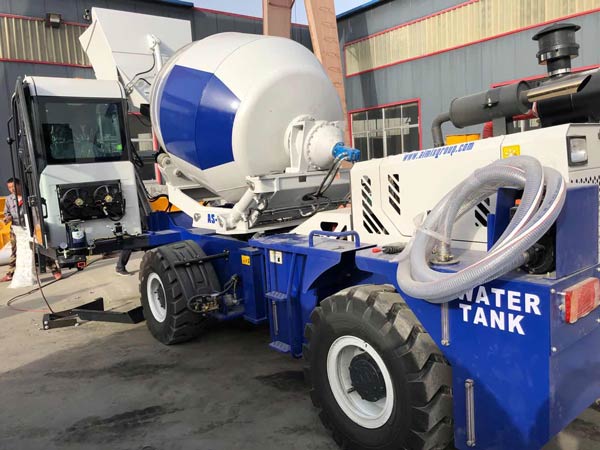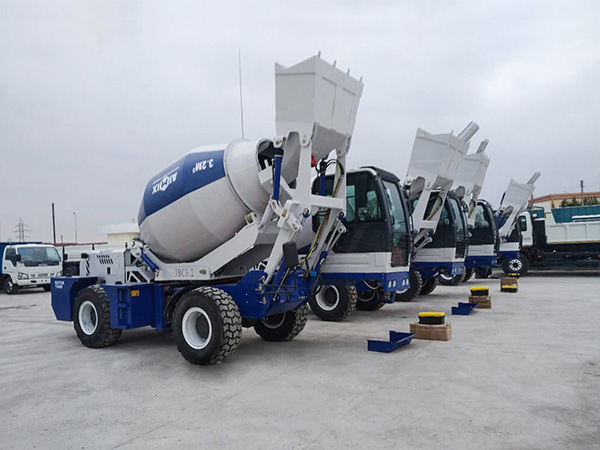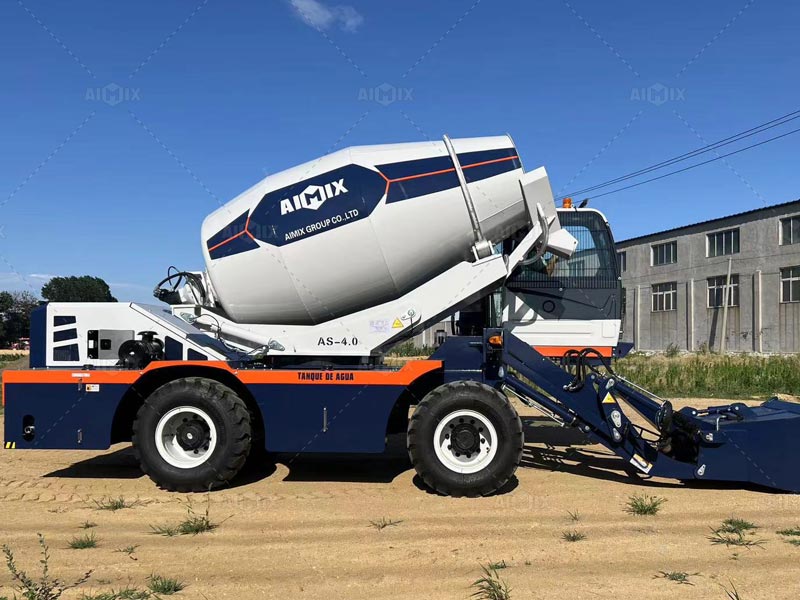Concrete mixers are essential tools in construction. Whether you use a self loading mixer concrete, mobile concrete mixer, hydraulic concrete mixer, or portable concrete mixer, you may encounter common problems. This article identifies these issues and provides new, valuable, and useful solutions for customers.

Drum Not Rotating
A non-rotating drum is a frequent problem. It can occur in any mixer type. Check for electrical issues first. Ensure the power source is connected and functioning.
Inspect the motor and wiring for damage. For hydraulic concrete mixers, check the hydraulic system. If the drum still doesn’t rotate, consult a professional. Regular maintenance can prevent this issue.
Inconsistent Mix
Inconsistent mixes can affect concrete quality. This problem can arise in self loading concrete mixers and the mobile mixer concrete. Ensure you use the correct proportions of materials.
Verify the mixing time and speed settings. Clean the drum regularly to prevent buildup. For hydraulic mixers, check the pressure settings. Adjust them for optimal mixing. Proper handling ensures a consistent mix.
Leaking Water Tank
Water tank leaks can disrupt the mixing process. This issue is common in mobile concrete mixers. Inspect the tank for cracks or holes. Repair any damage promptly.
Ensure the tank connections are secure. Regularly check for leaks during maintenance. For self loading mixers, inspect the automatic water system. Immediate repairs prevent further damage and ensure proper mixing.

Overheating Motor
Motor overheating can occur in all mixer types. This issue can lead to equipment failure. Check the motor’s ventilation system. Ensure it is clean and unobstructed.
Inspect the motor for signs of wear. Regular lubrication can reduce friction. For hydraulic mixers, monitor the hydraulic fluid levels. Proper cooling prevents overheating and extends motor lifespan.
Control Panel Malfunction
A malfunctioning control panel can disrupt operations. This problem can occur in self loading concrete mixers and hydraulic concrete mixers. Inspect the control panel for electrical issues.
Check the wiring and connections. Ensure all buttons and switches function correctly. If the problem persists, seek professional help. Regular inspections can prevent control panel malfunctions.
Excessive Noise
Excessive noise during operation can indicate a problem. This issue can arise in portable concrete mixers. Check for loose components. Tighten any loose parts to reduce noise.
Inspect the motor and drum for damage. Regular lubrication can reduce friction. For mobile mixers, check the wheel bearings. Addressing noise issues early prevents further damage.

Rust and Corrosion
Rust and corrosion can damage concrete mixers. This issue is common in all types. Regular cleaning and maintenance can prevent rust. Inspect the mixer for signs of corrosion.
Use rust-resistant coatings on exposed parts. For hydraulic mixers, check the hydraulic fluid for contamination. Preventing rust ensures the small concrete mixer remains functional and durable.
Power Supply Issues
Power supply issues can disrupt mixer operation. This problem can occur in all mixer types. Check the power source and connections. Ensure the voltage is correct.
Inspect the electrical wiring for damage. For portable mixers, ensure the battery is charged. Regular power supply checks prevent operational disruptions.
Conclusion
Concrete mixers can encounter common problems. Identifying these issues early ensures efficient operation. Whether you use a self loading, mobile, hydraulic, or portable concrete mixer, regular maintenance is crucial.
Addressing drum rotation issues, inconsistent mixes, and leaking water tanks enhances performance. Prevent motor overheating, control panel malfunctions, and excessive noise with proper care. Regular inspections prevent rust and power supply issues. Following these solutions ensures your concrete mixer remains reliable and efficient, contributing to successful project outcomes.

